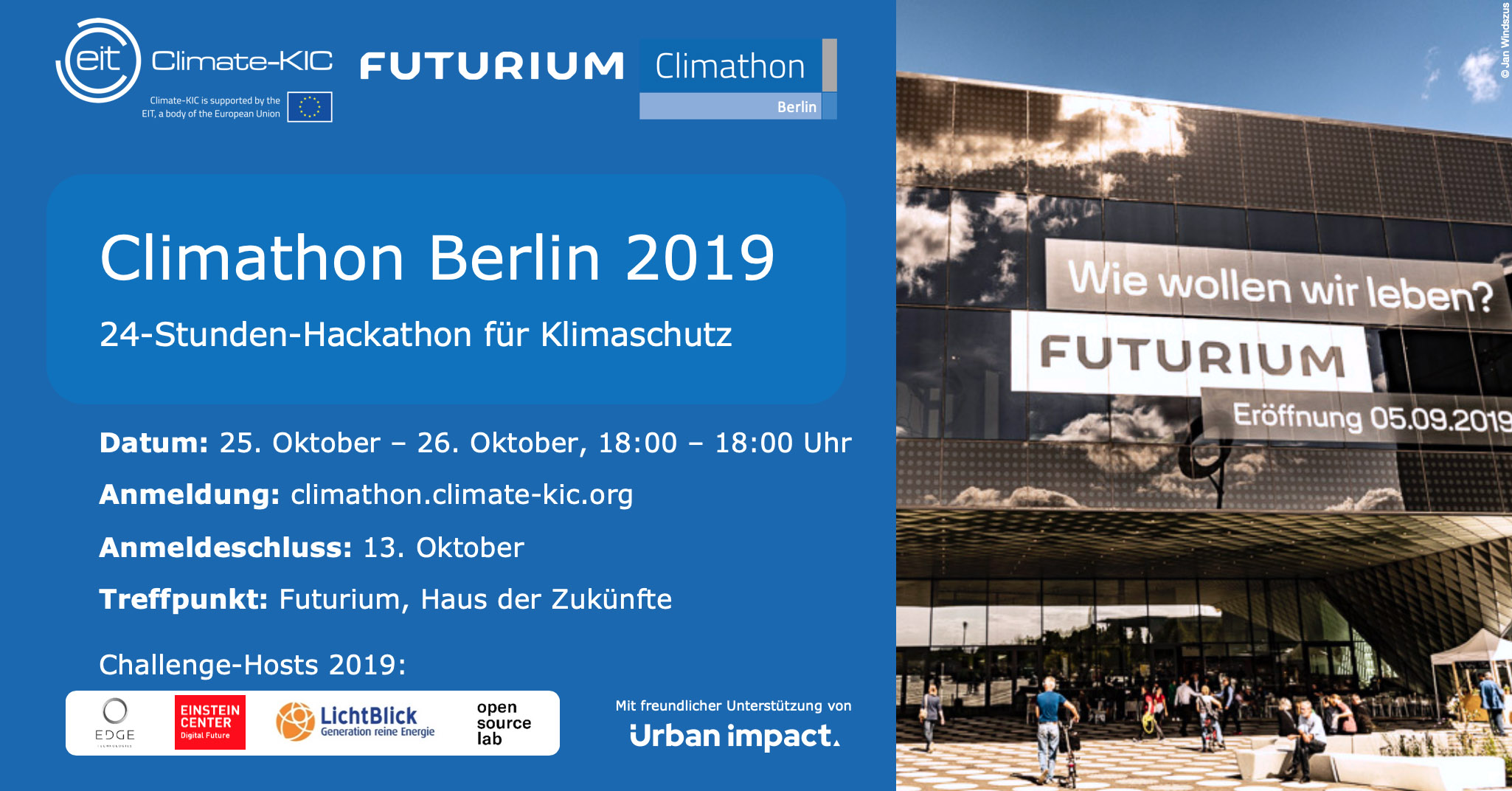The online platform Climathon has started a global movement of students, professors, organizations, cities, NGOs and NPOs, educational institutions and developers that all share the vision to create projects that can solve all kinds of urban problems. We look forward to meeting many inspirational people and learning about their projects and ideas.
Berlin on the Move – How Can Data Help Make Urban Mobility More Sustainable?
Our challenge focusses on the benefits of Open Data and Open Source technology and their role in reaching the aim of sustainable mobility in Berlin, especially in connection with e-mobility and shared mobility options.
Every Berliner is familiar with the inconvenience urban mobility can cause, ranging from traffic jams, insufficient bicycle roads, packed busses and trains to delays of all kinds. Current mobility standards also pose health risks due to their high emissions and often make citizens dependent on cars in neighborhoods were public transport is not reliable or running properly. In turn, this can lead to social isolations or less access to education and health care. With our challenge we want to explore the potential of data to overcome mobility related problems and contribute to reduce global warming.
At Climathon 2o19 we would like to find answers to the following questions:
How can mobility data contribute to urban CO2 reduction?
What tools (analog and digital) can support behavioral changes for a more environmentally conscious mobility behavior?
How could the environmental awareness of citizens, especially of car-drivers, be sharpened by tools?
What are the weak spots of Berlin’s neighborhoods in terms of mobility infrastructure and how can these be solved?
How can valuable data sources be used for mobility tools without undermining the digital self-determination of citizens?
How can mobility data contribute to creating an open ecosystem for mobility solutions and which data is necessary?
Stay tuned for this year’s Climathon by checking out their website and following their twitter account!
